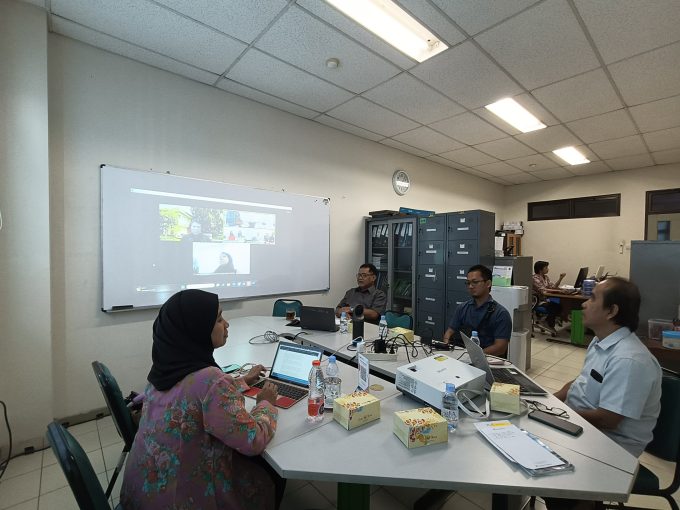
The Department of Agricultural Microbiology, Faculty of Agriculture, Universitas Gadjah Mada (UGM), conducted an internal quality audit (AMI) visitation on Thursday, October 3, 2024. The event took place from 8:00 AM to 12:00 PM at the Department of Microbiology Secretariat. This activity is part of efforts to enhance academic quality, governance, and services in line with the standards set by UGM and the Internal Quality Assurance System (SPMI).
The audit began with a welcome speech by the Head of the Department of Agricultural Microbiology, who emphasized the importance of AMI as an evaluation process for the department’s work plan implementation. The speech was followed by an explanation of the audit’s objectives, which included ensuring that all department programs and activities align with quality standards and promoting continuous improvement.
The audit team consisted of representatives from UGM’s Quality Assurance Agency (LPM), specifically appointed for this task. The Department of Microbiology’s audit team included Dr. Sudrajat, S.Si., M.P., and Dyaningtyas Dewi Pamungkas Putri, Ph.D., M.Sc., Apt. During the audit, the team reviewed supporting documents such as Semester Learning Plans (RPS), performance achievement data, and reports on research and community service activities. Interviews were also conducted with lecturers, administrative staff, and students to gain a comprehensive understanding of program implementation.
In the lecturer interview session, the auditors inquired about departmental support for applying for functional academic positions. Desi responded, “The department supports by providing resources to write practical guidebooks and incentives for publishing journals.” Additionally, Akbar added, “Self-development is supported through benchmarking trips to Vietnam, funded by the department.” In the staff interview session, the auditors asked about training opportunities available for administrative staff, to which Martini replied, “There are several accessible training programs for laboratory staff.”
The audit team commended several innovations by the Department of Agricultural Microbiology, such as community-based research programs and collaborations with international partners. However, recommendations were also made, particularly regarding documentation management and monitoring of key performance indicator (KPI) achievements.
The Head of the Department stated that the audit results would serve as evaluation material for drafting follow-up plans. “We are committed to continuously improving the quality of education and research in this department to support UGM’s vision as a world-class university rooted in local wisdom,” he stated.
Through this AMI, the Department of Agricultural Microbiology is expected to be better prepared to face global challenges in the development of science and technology, especially in agricultural microbiology. This synergy strongly supports the achievement of Sustainable Development Goal (SDG) 4: Quality Education.
Author: Roihana Ifa Kamalia
